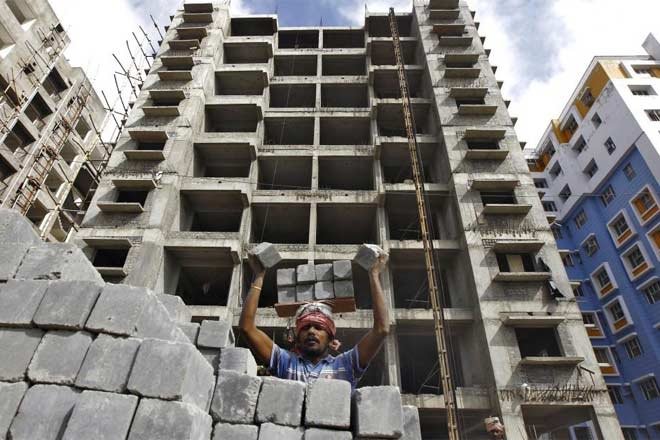By Amit Modi
India’s real estate sector got its own regulator from May 1, 2017. The Real Estate (Regulation and Development) Act, 2016 (RERA) has become effective in the entire country. Each state and UT has its own Regulatory Authority (RA) which frames regulations and rules according to the Act. We believe that it will further bring discipline and order in the real estate sector which has largely functioned as it wanted to over so many years.
A single indirect tax-structure known as Goods and Services Tax (GST) has been transformative in a way that it makes tax collection seamless across India, but at the same time its implementation has not been as seamless as expected. For example, the Union government has fixed 18% GST rate for under-construction properties with full Input Tax Credits (ITC) for the real estate sector, but it excludes the cost of land. The government has also allowed deduction of land value equivalent to one-third of the total amount charged by a developer, thus, making the effective tax rate 12%.
In the new regime, the quantum of Input Tax Credit is higher, though overflow of credit is restricted. The price of a property is an outcome of demand and supply dynamics, not taxes alone. Unlike in the past, the liability to pay taxes has shifted from the provider of goods and services to the receiver, if he happens to be a registered person. Any purchase from an unregistered dealer will attract a reverse charge on the recipient which adds to the compliance cost of the purchaser.
A major portion of the existing supply relates to under-construction properties, including ‘unsold inventory’, which could take anywhere around 12 months or more to complete. All such ongoing projects would now be required to be registered under RERA and hence adhere to new rules. With RERA’s stipulated compliances and regulations, the project launches may occur with lesser frequency than before. Thus, the appetite for existing inventories has gone up but will also eventually dwindle. This equation has altered the ongoing demand and supply proposition in the market affecting the pricing across the industry.
A slightly higher GST rate may not be acceptable to buyers, but at the same time the ready-to-move-in properties can be purchased without any indirect taxes. Hence, the impact of GST on buyers of resell properties in the secondary market is also likely to be very little. In the past, for under-construction property transactions, buyers had to pay value-added tax (VAT) and service tax. While VAT is a state levy and its rate differs from one state to another, service tax is a Central tax charged at 15 per cent. Overall, the current taxes on home purchase are not low and involve mind-boggling complexities.
RERA has also brought peace of mind for homebuyers. Till now, potential buyers of under-construction, new launches and pre-launch properties had some big questions in their mind, such as: “how do they know that they have been given correct information, and will the project be delivered on time?” Now everything is transparent as every registered developer’s details are available on RERA’s website and they will deliver as per those specifications. That way, a lot of tension associated with the buying process has reduced.
GST is a game-changer for the Indian industry, including the real estate sector, since it subsumes more than 16 major taxes and levies into a single consolidated tax. Additionally, the unified tax regime will stop the unwanted practice of double taxation, which hurt real estate and other sectors, given their cascading effect that inflated prices for end users. Though unorganised players are wary of GST’s impact, it will create a level playing field for organised entities; the former will now come within the tax ambit. With GST enforcing transparent transactions across all domains, this is a blessing in disguise for real estate developers too.
Even though RERA and GST are set to change the scenario in the industry, still a lot of confusion remains in terms of the implementation of these two initiatives. Although they have been hailed for bringing transparency in the system, but on the other hand their implementation has also been an impediment towards ease of doing business in India. There is no doubt that the long-term effect of these initiatives is bound to be positive, but at the same time a lot of chinks need to be ironed out in the coming months to boost the real estate sector.
(The author is Director, ABA Corp and Vice President, CREDAI Western UP)

